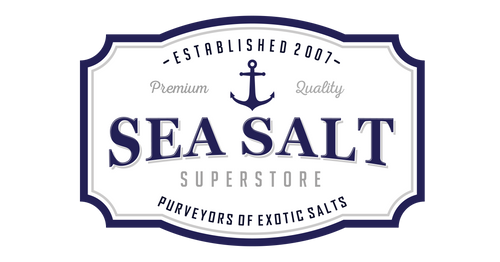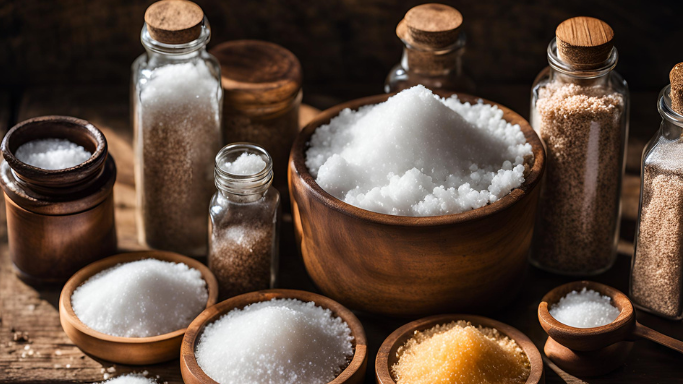Salt, in its purest form, is one of the oldest and most stable substances known to humanity. It has been used for thousands of years not just as a seasoning, but also for preserving food. This longevity has led many to wonder: Can salt expire? The answer is no—pure salt doesn’t spoil or go bad. However, its quality can change over time due to moisture, contamination, and the way it’s stored. Here’s what you need to know about salt’s shelf life and the best ways to store it for maximum freshness.
1. Does Salt Expire?
In short, salt itself doesn’t expire because it is a naturally occurring mineral, and bacteria, mold, or other microorganisms cannot grow on it. Unlike fresh produce, which rots over time, salt is inert and does not degrade. As a result, salt has an indefinite shelf life when kept in optimal conditions. You’ll never have to worry about salt “going bad” in the traditional sense, but improper storage can affect its texture, flavor, and appearance.
2. How Salt Quality Can Change Over Time
While salt doesn’t technically spoil, several factors can affect its quality:
Absorbing Moisture: If salt is exposed to moisture, it can clump together and lose its easy-to-sprinkle texture. This can happen more easily with salts that have larger crystals, like kosher salt or sea salt. When salt absorbs moisture, it can also start to dissolve, which changes its effectiveness as a preservative or seasoning.
Contamination: Salt can absorb odors and contaminants from the environment, which may alter its flavor. This is particularly common with flavored salts or those with added minerals. If salt comes into contact with contaminants like oil, food particles, or strong-smelling substances, its taste can change, becoming less pure or unpleasant.
Light Exposure: For specialty salts, such as Himalayan pink salt or sea salt, long-term exposure to light can cause slight degradation of color and texture, although this doesn’t render it harmful.
While none of these factors will make salt unsafe to consume, they can compromise its texture and flavor, which is why proper storage is important to maintain its best quality.
3. How to Store Salt for Maximum Freshness
The good news is that storing salt properly is easy, and with a few simple precautions, you can keep it fresh for years. Here’s how to ensure your salt stays at its best:
Keep Salt Dry
Moisture is the number one enemy of salt. If it absorbs water, it can clump together and lose its original texture. To avoid this, store salt in a dry, airtight container. Many salts come in resealable bags or jars, which are great for keeping out moisture. If you’re storing salt in a container without a lid, make sure it’s sealed tightly to prevent humidity from getting inside.
Use a Moisture Absorber
If you live in a humid environment, you can add a moisture-absorbing packet (such as silica gel or rice) to your salt container. This will help to keep the salt from clumping and ensure that it remains free-flowing. Some salt containers also come with a built-in moisture absorber, which is especially common for salts like kosher or sea salt.
Keep Salt in a Cool, Dark Place
Salt should be stored in a cool, dry place away from direct sunlight and heat. Light and heat can cause color changes, particularly in specialty salts, and may affect their texture. A kitchen cabinet or pantry away from the stove or dishwasher is ideal.
Avoid Contamination
To maintain the purity of your salt, never dip wet or oily utensils into your salt container. This can cause clumping or contamination of the salt. If you’re using salt in a salt grinder or shaker, make sure the lid is tightly closed and that it’s kept dry between uses.
Consider Salt-Specific Storage Options
For specialty salts like Himalayan pink salt or Fleur de Sel, you might want to store them in containers that protect them from moisture while also allowing you to see the salt clearly. For these types of salts, use clear glass jars with secure lids or ceramic salt containers that prevent moisture without affecting the salt’s appearance.
4. How Long Does Salt Last?
Since salt doesn’t spoil, it essentially lasts indefinitely. However, the quality may degrade over time if stored improperly. As long as you keep it in an airtight, moisture-free environment, your salt will remain good to use for years. Specialty salts like Himalayan pink salt or flavored salts may lose their aroma or texture after several years, but they will still be safe to use.
Conclusion
Salt is one of those rare kitchen staples that doesn’t have an expiration date. While it doesn’t spoil, its quality can decline if exposed to moisture, contaminants, or light. To ensure your salt stays fresh for as long as possible, store it in a dry, airtight container in a cool, dark place. Properly stored, your salt will last indefinitely, retaining its purity and flavor for whenever you need it.




